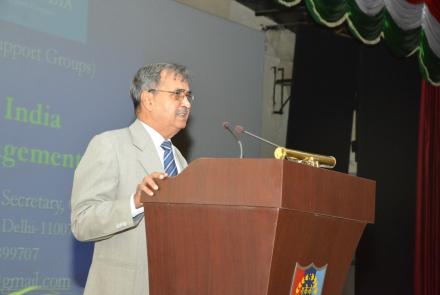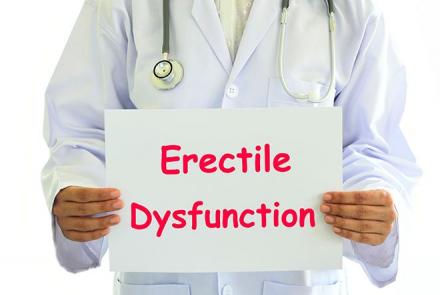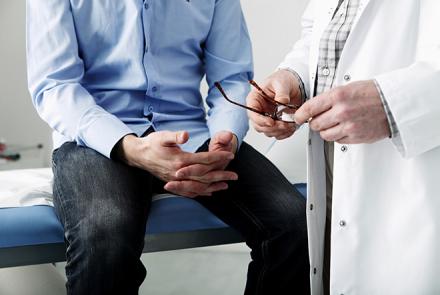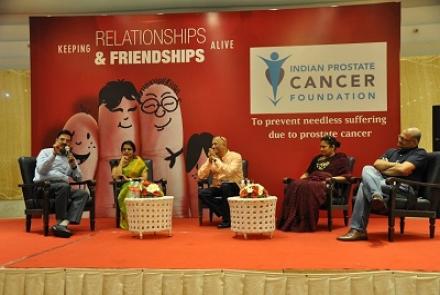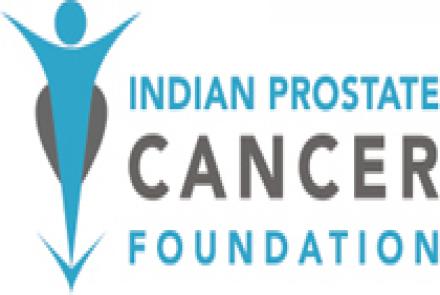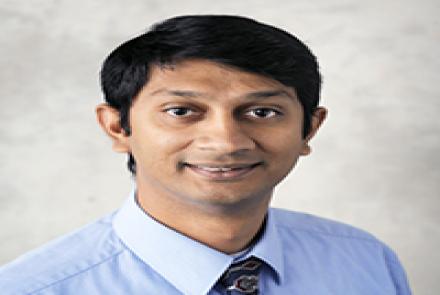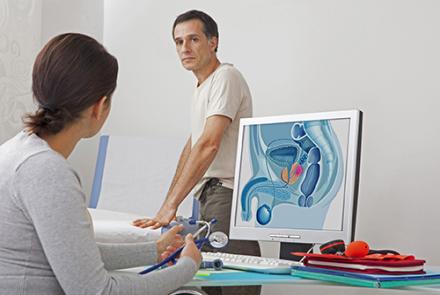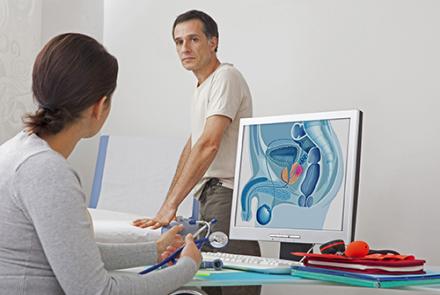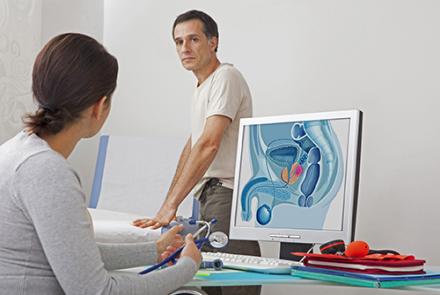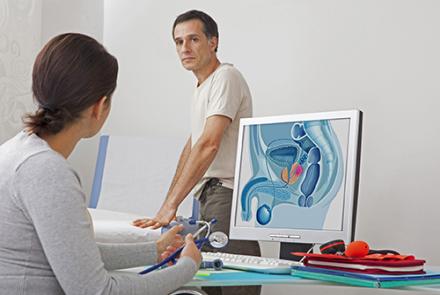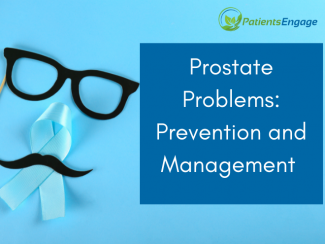
Dr. Ajit M Vaze, senior urological surgeon and past President of Urological Society of India, talks about the two main prostrate problems faced by men, prostate enlargement and prostate cancer, and recommends tips for keeping a healthy prostate.
What are the common prostate problems?
Diseases of prostate can be divided broadly into cancerous and non-cancerous. The commonest of non-cancerous problems of prostate is benign prostatic hyperplasia (BPH) — also called prostate gland enlargement. Other diseases include infection of prostate namely acute and chronic bacterial prostatitis. Prostate cancer is a common cancer although it is indolent and symptoms are less common.
What are some of the warning signs of prostate enlargement?
Symptoms of enlarged prostate can include:
- frequency of urine
- urgency of urine
- Nocturia or getting up multiple times in the night to pass urine
- poor stream of urine
- feeling of incomplete voiding
- recurrent urinary infection
- and the most severe of all- retention of urine where in the patient cannot pass any urine at all
How does age affect prostate cancer? In what age group is prostate cancer most common?
Early onset prostate cancer (diagnosed in men < 55 years of age) is considered a different clinical entity from prostate cancer diagnosed at an older age. A number of large population based studies have demonstrated poor survival among patients <50 years of age with advanced prostate cancer or unknown stage disease as compared to older patients
The commonest age of presentation is population more than 55 years of age. Also, prostate cancer is associated with a few gene line mutations namely BRCA1 and BRCA2, thus there is also a genetic risk of prostate cancer.
Do geriatric issues complicate matters in management of prostate cancer in elderly patients?
For organ confined prostate cancer if the patient has comorbidities like diabetes, hypertension, cardiac diseases, then like any other surgery it increases the risk for radical prostatectomy
For metastasized prostate cancer risks of giving androgen blockade or chemotherapy can have musculoskeletal, haematological and cardiac complications in elderly population.
What is prostatectomy? What are its advantages and disadvantages?
Prostatectomy is removal of prostate and seminal vesicles along with anastomosis of the bladder neck to the membranous urethra. It may or may not include pelvic lymph node dissection
Advantages: Removing the prostate for an organ confined cancer provides possibility of cure. Also the urine flow improves as obstruction caused by prostate is gone.
Disadvantages include urinary incontinence and erectile dysfunction.
How does prostate get enlarged?
Most men have continued prostate growth throughout life. In many men, this continued growth enlarges the prostate enough to cause urinary symptoms or to significantly block urine flow.
It isn't entirely clear what causes the prostate to enlarge. However, it might be due to changes in the balance of sex hormones as men grow older.
- Risk factors for prostate gland enlargement include:
- Aging: Prostate gland enlargement rarely causes signs and symptoms in men younger than age 40. About one-third of men experience moderate to severe symptoms by age 60, and about half do so by age 80.
- Family history: Having a blood relative, such as a father or a brother, with prostate problems means you're more likely to have problems.
- Diabetes and heart disease: Studies show that diabetes, as well as heart disease and use of beta blockers, might increase the risk of BPH (benign prostatic hyperplasia, also called prostate gland enlargement.)
- Lifestyle: Obesity increases the risk of BPH, while exercise can lower your risk.
- Complications of an enlarged prostate can include:
- Sudden inability to urinate (urinary retention): You might need to have a tube (catheter) inserted into your bladder to drain the urine. Some men with an enlarged prostate need surgery to relieve urinary retention.
- Urinary tract infections (UTIs): Inability to fully empty the bladder can increase the risk of infection in your urinary tract. If UTIs occur frequently, you might need surgery to remove part of the prostate.
- Bladder stones: These are generally caused by an inability to completely empty the bladder. Bladder stones can cause infection, bladder irritation, blood in the urine and obstruction of urine flow.
- Bladder damage: A bladder that hasn't emptied completely can stretch and weaken over time. As a result, the muscular wall of the bladder no longer contracts properly, making it harder to fully empty your bladder.
- Kidney damage: Pressure in the bladder from urinary retention can directly damage the kidneys or allow bladder infections to reach the kidneys.
Is surgery the only cure for a large prostrate?
For none of the enlarged prostate patient, surgery is the first line of treatment. As a protocol all prostate enlargement patients have to be treated on medical line of treatment.
In spite of being on medical line of treatment if the patient does not report to have alleviation of symptoms, surgery remains a preferred choice based on uroflowmetry results.
Following are non-surgical options. However it is important to note that they are experimental and expensive with variable results and unknown long term complications.
- Urolift: is a minimally invasive approach to treating an enlarged prostate, or BPH, that lifts or holds the enlarged prostate tissue out of the way so it no longer blocks the urethra.
- Prostatic artery embolization (PAE): is a procedure where an interventional radiologist uses a catheter to deliver small particles that block the blood supply to the enlarged prostate. The procedure is not a surgical intervention and allows all the functions of prostate to be kept in place. After embolization the shrinkage of an enlarged prostate occurs in 2 to 3 weeks.
- Water vapour therapy for benign prostatic hyperplasia: The method for treating an enlarged prostate is minimally invasive. It is performed by going up through the urethra and using an instrument that turns water into steam. The steam delivery lasts only seconds. The procedure is designed to be done in a doctor’s office. You will not need general anaesthesia. You will receive only local anaesthesia.
A common cause of urine blockage for men is prostate gland enlargement. Is there any self-helps ways to increase urine flow with enlarged prostrate?
To help control the symptoms of an enlarged prostate, try to:
- Limit beverages in the evening. Don't drink anything for an hour or two before bedtime to avoid middle-of-the-night trips to the toilet.
- Limit caffeine and alcohol. They can increase urine production, irritate the bladder and worsen symptoms.
- Limit decongestants or antihistamines. These drugs tighten the band of muscles around the urethra that control urine flow, making it harder to urinate.
- Go when you first feel the urge. Waiting too long might overstretch the bladder muscle and cause damage.
- Schedule bathroom visits. Try to urinate at regular times — such as every four to six hours during the day — to "retrain" the bladder. This can be especially useful if you have severe frequency and urgency.
- Follow a healthy diet. Obesity is associated with enlarged prostate.
- Stay active. Inactivity contributes to urine retention. Even a small amount of exercise can help reduce urinary problems caused by an enlarged prostate.
- Urinate — and then urinate again a few moments later. This practice is known as double voiding.
- Keep warm. Colder temperatures can cause urine retention and increase the urgency to urinate.
What is the recommended age for a prostate exam?
Most guidelines recommend PSA (Prostate-specific antigen) screening to start no later than at age 55 and involve well-informed men in good health and a life expectancy of at least 10–15 years. Some suggest to start screening in early midlife for men with familial predisposition and men of African-American descent. Others suggest starting conversations at age 45 for all men. Re-screening intervals can be risk-stratified as guided by the man’s age, general health and PSA-value; longer intervals for those at lower risk and shorter intervals for those at higher risk. Overdiagnosis and unnecessary biopsies can be reduced using reflex tests.
What are the various myths surrounding prostate cancer?
Common myths include-
1. MYTH: Only elderly men get prostate cancer
FACT: Many factors contribute to an increased risk for prostate cancers: family history, lifestyle, and overall health.
In general, the older you are, the more likely you are to develop prostate cancer.
Most prostate cancers are diagnosed in elderly men, and the median age of prostate cancer death is 80 years of age.
2. MYTH: If I don’t feel a tumour, I don’t have prostate cancer
FACT: Prostate cancers are highly asymptomatic: the symptoms vary widely from person to person and may be caused by several other conditions or disorders.
If you experience any of the following symptoms, be sure to speak with a primary care physician for evaluation:
- Increased need to urinate frequently
- Difficulty starting or holding back urine
- Painful or burning urination
- Other urination issues
- Difficulty achieving an erection
- Painful ejaculation
- Blood in urine or semen
- Pain or stiffness in lower back or groin area
- Unexplained weight loss or decreased energy levels
3. MYTH: PSA testing is not beneficial
FACT: The prostate-specific antigen (PSA) test is the best way to test for early-stage prostate cancer.
4. MYTH: Surgery is my only treatment option
FACT: Surgery is one of many treatment options for prostate cancer. “Partial gland ablation is an increasingly popular treatment option, as well as high-intensity focused ultrasound.”
5. MYTH: Prostate cancer surgery will end your sex life and cause incontinence
FACT: Impotence and incontinence are risks associated with prostate cancer treatment, but certainly not the case universally.
Could you give us 5 tips to maintain a healthy prostate?
- Choose a healthy, low-fat diet
- Increase the amount of fruits and vegetables you eat each day.
- Reduce the amount of dairy products.
- Maintain a healthy weight.
- Exercise most days of the week.
- Decrease in alcohol intake.
- Smoking cessation.
(Dr. Ajit Vaze is a Consultant Urologist at P D Hinduja Hospital and Medical Research Centre, Khar. The interview also has contributions by Dr Sony B Mehta, Consulting Urologist.)


